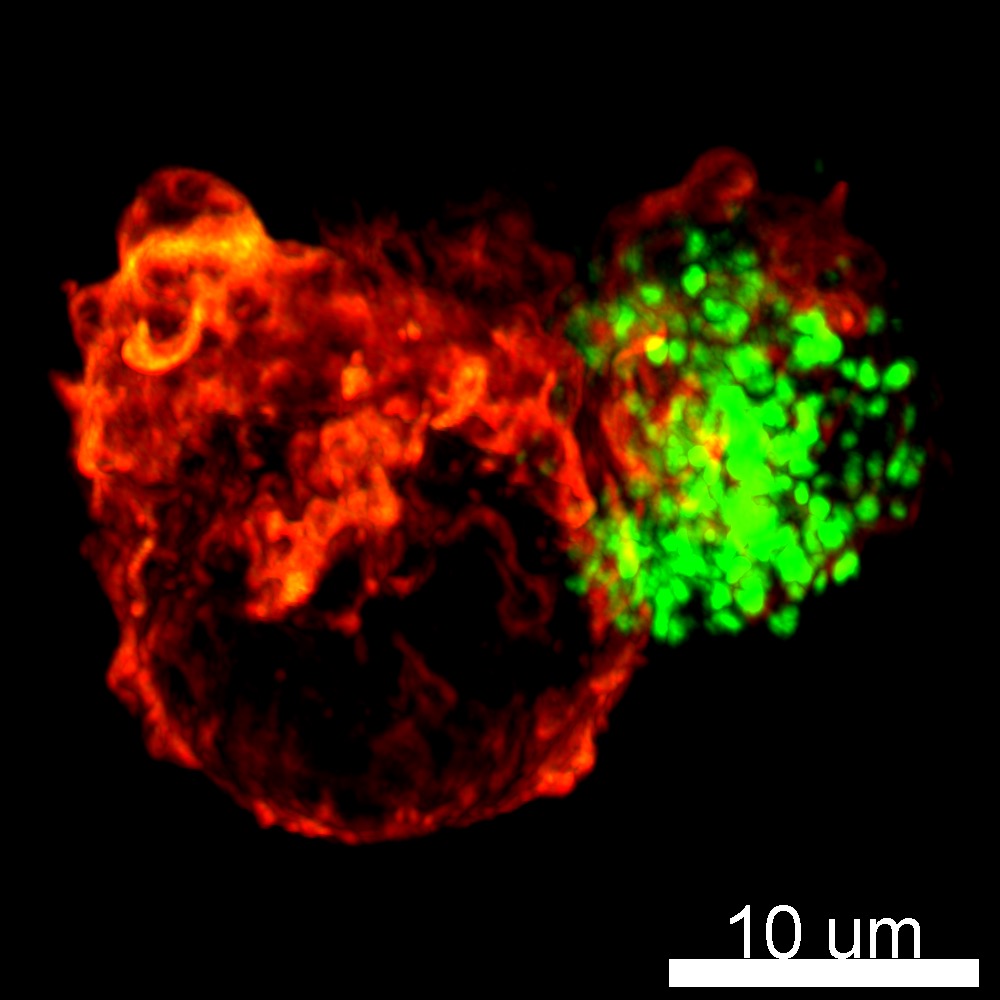Our Research
Our overall mission is to identify cellular and molecular mechanisms underlying failed inflammation-resolution programs in atherosclerosis and aging.
Persistent, non-resolving inflammation is the underpinning of several prevalent human diseases. Therefore, understanding cellular and molecular mechanisms that promote the resolution of inflammation (or inflammation-resolution) is an unmet clinical need.
The resolution response is in part mediated by specialized pro-resolving mediators, that include resolvins. We recently found that key resolvins protect against atherosclerosis and limit several features of aging.
Macrophages are key players in atherosclerosis and aging . They take cues from their local environment and so understanding how to reprogram macrophages to resolve and repair as opposed to promote inflammation is a major focus of the lab.
RvD1-stimulated macrophage (LifeAct-RFP, red) engulfing a necroptotic cell (PKH67, green).
Optical slice of a macrophage (red) “nibbling” a necroptotic cell (green)

